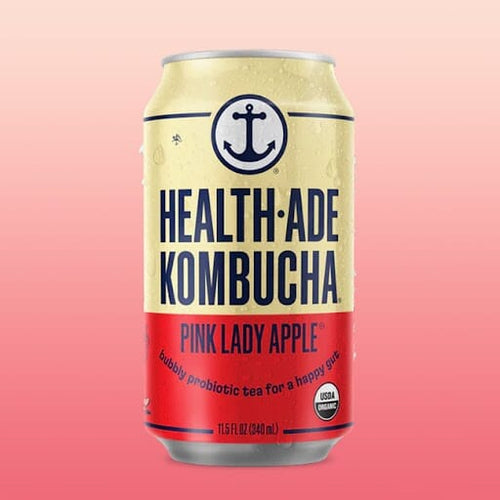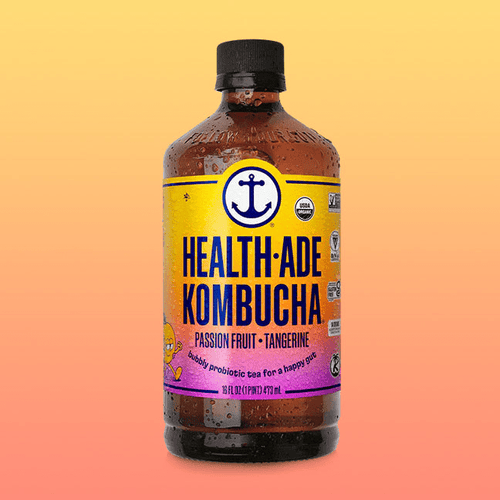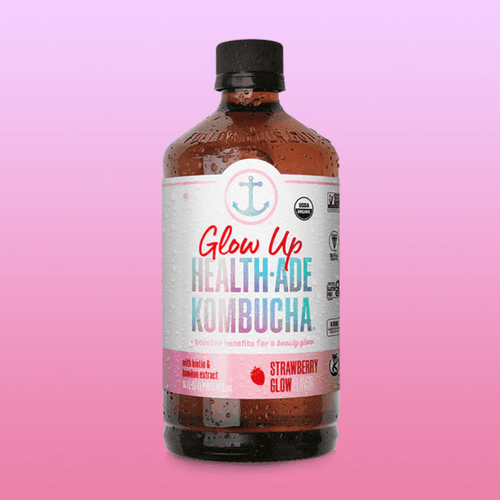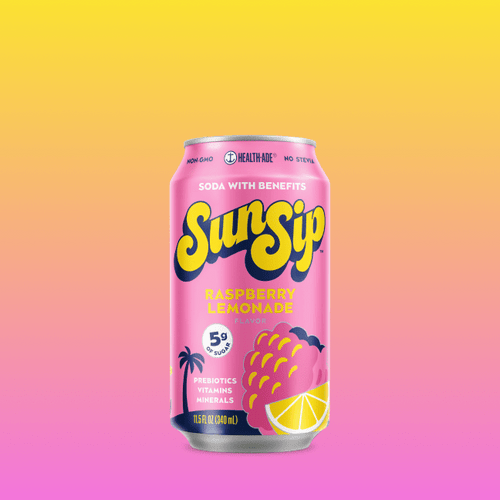Our bubbly probiotic tea designed for all of life's adventures.

Prebiotics: What they are and why you should care
Copied URL to clipboard!
Prebiotics: What they are and why you should care
We’ve talked A LOT about the microbiome and how probiotics found in fermented foods can contribute to your health. Now, let’s dive into the world of PRE-biotics, as they may even be more important than probiotics in your diet when it comes to changing your gut.
What are probiotics?
Quick refresher! PRO-biotics are specific bacteria you ingest, usually in the form of a pill or a fermented food, that (hopefully) go directly to your gut and take up residence in your natural microbiome. An abundance of bacteria in your gut is correlated with countless health benefits, so probiotics hold great potential to do good if they actually make it there!
What are prebiotics?
PRE-biotics are food for the friendly bacteria that live in your gut. Prebiotics come in the form of polyphenols or fibers, found in fruits, vegetables, beans, legumes, and fermented foods. Your body can’t digest these compounds, but your gut bacteria can. The microbiome is healthiest when its bacteria have a variety of prebiotics to eat – that's when the good bacteria can grow, be diverse, and be truly abundant. This is when the magic of a happy gut happens!
-
Eating a diet rich in a variety of prebiotics is associated with a high abundance of “good” bacteria in the gut. Remember from the last blog post, Understanding Your Gut Microbiome, this is REALLY good for your overall health.
-
Most products out there source their prebiotics from fibers like inulin (usually derived from the root vegetable chicory) or polyphenols like proanthocyanidins or PACs (from plants like cranberry or corn husks). The best part? SunSip is made with BOTH forms of prebiotics—inulin fiber + PACs. Talk about a double whammy!
-
Foods that are naturally high in prebiotics: chicory root, dandelion greens, artichoke, garlic, onion, leek, asparagus, banana, barley, jicama, burdock root, oats and apples. ALSO—anything fermented will be rich in prebiotics, so add to the list some of my faves like sauerkraut, kimchi, yogurt, kefir, and of course, kombucha!
-
You’re more likely to drive a healthy microbiome by eating prebiotics (vs taking probiotics). The reason is that probiotics are very specific, and what you lack (and therefore need) differs person to person. Taking a probiotic pill will only support your gut if it’s the one you’re lacking, and you’d need to take a stool test to REALLY know. Prebiotics, in contrast, are non-specific. In general, they create a very healthy environment for ALL good bacteria to grow. For this reason, science demonstrates that having a diet rich in prebiotics drives microbiome abundance on the whole more than anything else.
-
Prebiotics are fascinating candidates for scale and mass production, as they are safe, easy to isolate and produce, and don’t degrade easily. This is very different than probiotics, which are very hard to keep alive and don’t easily make it into your belly.
Unfortunately, our healthcare system in general is nowhere close to being up to date on the science as it relates to gut health, so we shouldn’t expect official recommendations for daily prebiotic intake for some time. That said, the science is extremely strong: experts and nutritionists agree that taking time to address and prioritize gut health may improve almost every area of our health, not just digestion.
In summary, it won’t be until you incorporate prebiotics along with a healthy diet, that you tap into the FULL power of your gut. My opinion? The easiest way to do it = fermented foods!












